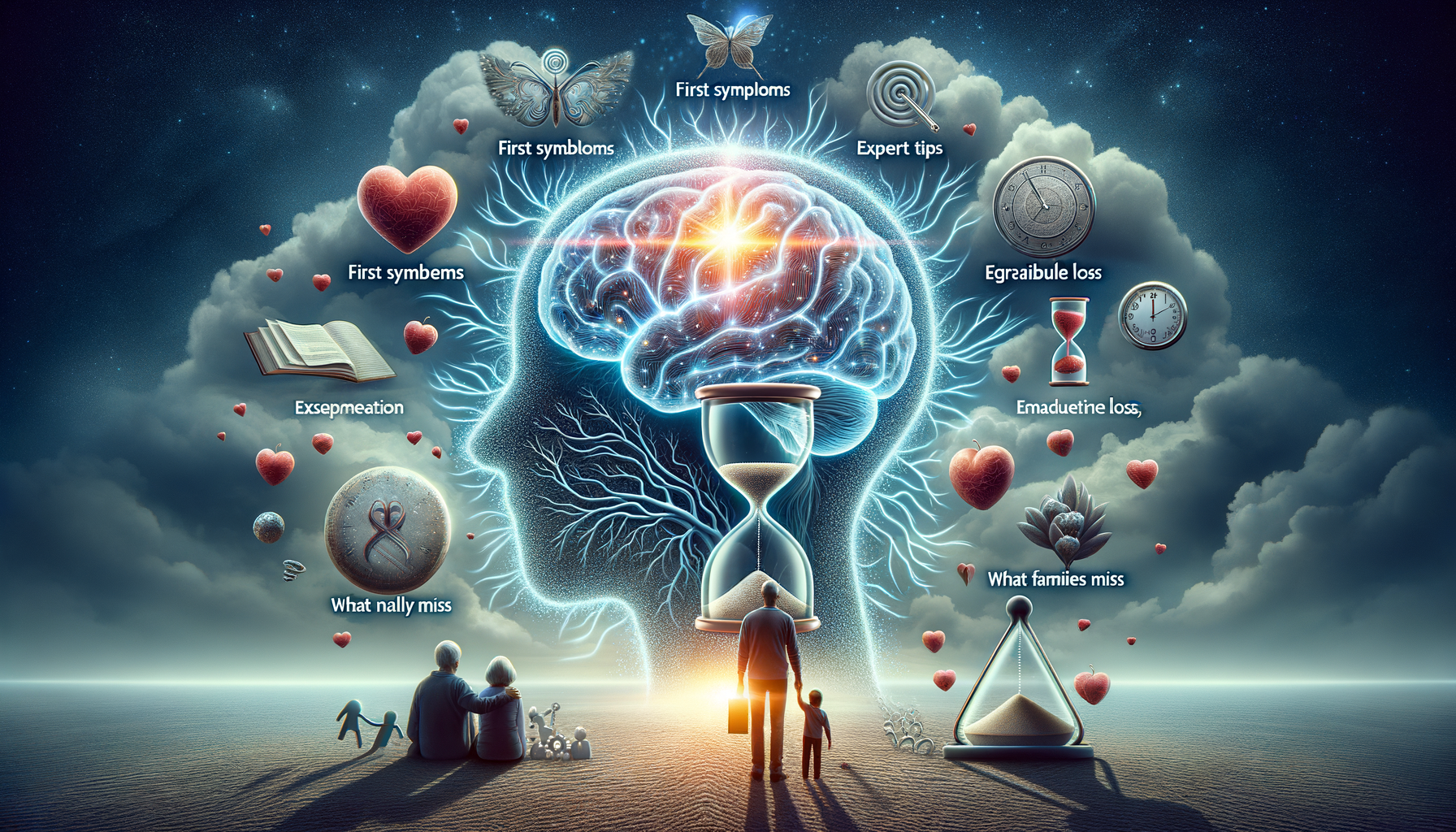Understanding Dementia: First Symptoms, Expert Tips, and What Families Miss Most
Recognizing the early signs of dementia can help families better understand the condition, respond with informed support, and avoid commonly overlooked warning signals.

Introduction to Dementia and Its Early Signs
Dementia is a complex and progressive condition that affects millions of people worldwide. Understanding its early signs can be crucial for timely intervention and support. This article aims to shed light on the initial symptoms of dementia, offering insights into how families can better recognize and respond to these changes.
Early identification of dementia can significantly impact the quality of life for those affected. Recognizing these signs allows for a proactive approach in managing the condition, providing the necessary care and support to slow its progression. It is essential for families to be aware of these early indicators to avoid missing critical warning signals.
Cognitive Changes: Memory Loss and Confusion
Memory loss is often one of the first noticeable signs of dementia. It goes beyond the occasional forgetfulness that many people experience. Individuals may struggle to recall recent events or important dates, leading to confusion in daily activities.
These cognitive changes can manifest in various ways, such as:
- Difficulty remembering appointments or commitments.
- Repeatedly asking the same questions.
- Misplacing items and being unable to retrace steps.
Confusion about time and place is another significant indicator. A person with dementia may lose track of dates, seasons, and the passage of time. They might also find themselves in unfamiliar settings and struggle to navigate their surroundings.
Behavioral and Mood Changes
Dementia can lead to noticeable changes in behavior and mood. Individuals may experience shifts in personality, becoming more withdrawn or exhibiting signs of depression. These changes can be challenging for families to understand and manage.
Some common behavioral changes include:
- Increased irritability or agitation.
- Loss of interest in hobbies or activities they once enjoyed.
- Unexplained mood swings.
Recognizing these changes early can help families provide the necessary emotional support and seek professional guidance. It’s important to approach these situations with empathy and understanding, acknowledging the challenges faced by the individual.
Communication Difficulties
As dementia progresses, individuals may encounter difficulties in communication. They might struggle to find the right words or follow conversations, leading to frustration and social withdrawal.
Signs of communication difficulties can include:
- Pausing frequently while speaking.
- Substituting words or using vague terms.
- Repeating themselves or losing track of the conversation.
These challenges can impact relationships and social interactions. Families can support their loved ones by practicing patience and encouraging open communication, creating a comfortable environment for expression.
Impact on Daily Living and Activities
Dementia can affect an individual’s ability to perform daily tasks and activities. This can range from difficulty managing finances to challenges with personal hygiene and household chores.
Some common signs include:
- Struggling to follow a familiar recipe.
- Neglecting personal care routines.
- Difficulty organizing tasks and managing time.
Recognizing these changes is essential for providing appropriate support and assistance. Families may need to step in to help manage daily activities, ensuring safety and well-being. Seeking professional advice and exploring available resources can also be beneficial in creating a supportive care plan.
Conclusion: Supporting Loved Ones with Dementia
Understanding the early signs of dementia is crucial for families and caregivers. By recognizing these symptoms, they can provide informed support and create a nurturing environment for their loved ones. Early intervention and ongoing care can enhance the quality of life for individuals with dementia, allowing them to maintain independence and dignity.
As dementia progresses, it is important for families to remain vigilant and proactive in seeking professional guidance and support. By staying informed and empathetic, families can navigate the challenges of dementia with compassion and resilience.